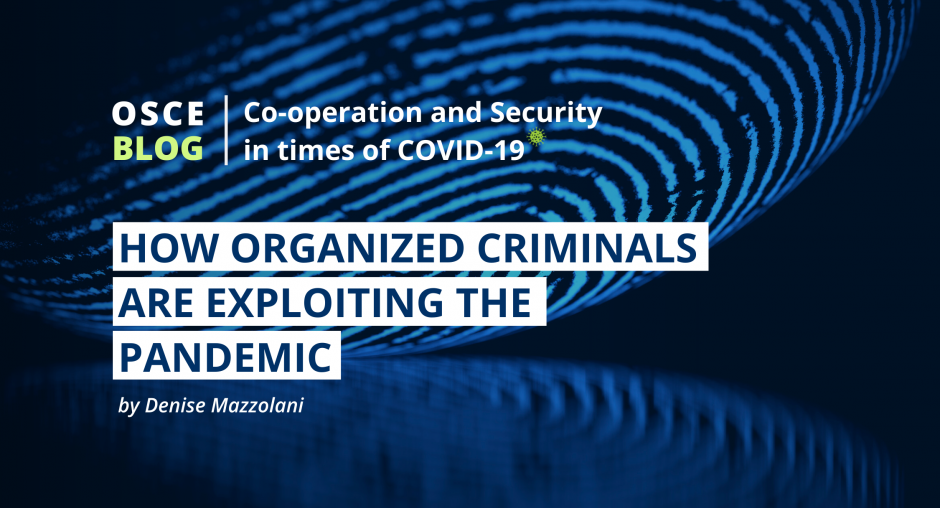How organized criminals are exploiting the pandemic

Societies and economies are facing many challenges caused by the coronavirus pandemic. But the virus is not the only danger in this unprecedented socio-economic crisis. Organized criminals are using this vulnerable situation to create avenues of profit and weaken our state institutions.
Organized criminals are taking advantage of the misinformation and fear within our societies by selling counterfeit medical products online. Where they have infiltrated the health sector and pharmaceutical supply chains, they are trying to divert public funds allocated for the effective response to COVID-19. This is putting lives at risk and hindering our state institutions from ensuring our public health and security.
Organized crime also poses a significant threat to the recovery of our economies. Lockdowns and strict quarantine measures have severely affected small- and medium-sized enterprises, which now face major financial difficulties. Organized crime groups are already creating dependencies, or even directly taking over entire branches of business. They are offering ad-hoc, cheap and non-official loans, which fuels money-laundering activities.
States across the OSCE region are allocating large sums of public funds to counter the economic effects of the pandemic. Strong state institutions and good governance are more important than ever in assuring that these public funds are being managed correctly for them to have the desired effect of aiding our societies during these challenging times. Although checks on public tenders are designed to root out criminal enterprise, the large scale of planned investments, in wake of the coronavirus pandemic, and the pressure that state institutions are under to provide ad-hoc and un-bureaucratic support to businesses, could mean that these processes are rushed and less likely to detect illegitimate businesses.
The OSCE’s Transnational Threats Department stands ready to work closely with civil society and law enforcement agencies across the entire OSCE region to proactively re-focus their efforts on new crimes and risks and co-ordinate their closer collaboration with anti-corruption agencies. We will continue to foster and strengthen society’s trust and co-operation with police to sustainably counter the infiltration of organized crime. Furthermore, we will invest in youth crime prevention and educational projects fostering legality that upholds the rule of law and good governance, and focus on the vulnerable socio-economic circumstances the pandemic has caused or enhanced that might drive youth involvement in organized crime.
These efforts will strongly complement the initiatives we already have in place to sustainably fight organized crime across the OSCE region. The Strategic Police Matters Unit is working together with the Office of the Co-ordinator of OSCE Economic and Environmental Activities (OCEEA) in different capacity-building initiatives focusing on the seizure of organized criminals’ assets, their subsequent management and social re-use, as well as raising public awareness and youth crime prevention.
In South-Eastern Europe, for example, we are working to improve regional co-operation among Albania, Bosnia and Herzegovina, Montenegro, North Macedonia and Serbia. By adopting a holistic approach, we are working with these States to support to the entire cycle of asset recovery, which will be divided into three areas of intervention:
- financial investigations, asset seizure and asset confiscation;
- asset management;
- asset re-use.
By depriving organized criminals of their assets, we can make this crime less lucrative and cut off their access to resources that further drive their activities.

